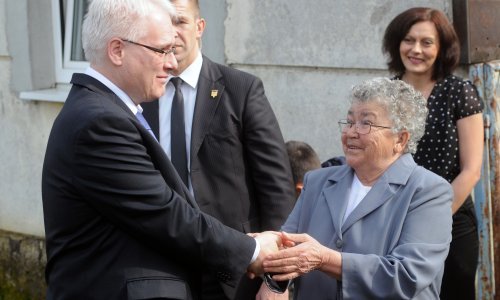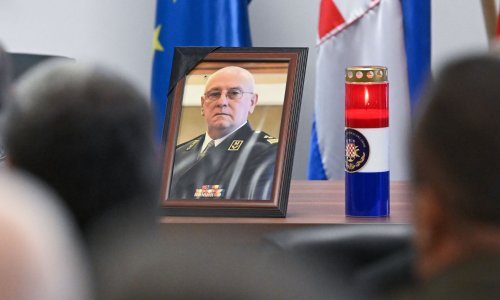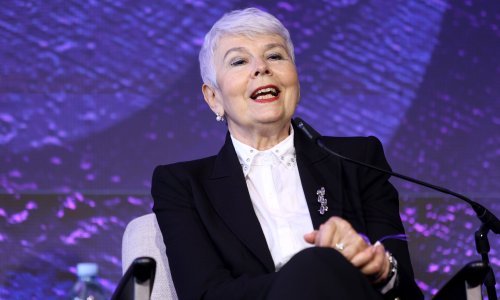Croatian President Ivo Josipovic on Monday evening gave a reception on the occasion of Statehood Day, which is observed on June 25, expressing gratitude to all who contributed to Croatia's independence and sovereignty as well as to all who made it possible for the country to be completing its EU entry talks for the 20th anniversary of its independence.
Congratulating the incumbent government, which he said had invested great effort to complete the EU accession process, Josipovic said credit should also be given to the previous governments, including the one led by the late Social Democratic Party leader Ivica Racan, which he said "opened our European path".
Josipovic expressed special gratitude to veterans who gave their lives for Croatia's freedom and independence.
The reception, held at Josipovic's office, was attended by Parliament Speaker Luka Bebic, Prime Minister Jadranka Kosor, numerous ministers and MPs, judicial officials, religious dignitaries, members of the Croatian Armed Forces Main Staff, business people, representatives of war veterans' associations, and representatives of the nongovernmental and cultural sectors.
Josipovic said that over the past two decades Croatians had successfully dealt with numerous, often very difficult tasks, from the defence and liberation of the country to the establishment of democratic institutions. There were omissions and mistakes as well, and we are now learning to deal with them, he added.
"Not dealing with war crimes, privatisation crimes and all kinds of injustice must come to an end," Josipovic said, adding that "citizens are right to expect European values, which we have adopted in the process of meeting criteria for EU accession, to take hold fully."
In the context of the announced closing of negotiating areas and completion of EU entry talks, Josipovic expressed gratitude to all members of the ruling coalition and the opposition who he said had helped build Europeanism in Croatia and encouraged positive reforms.
He also thanked Croatia's negotiating team, as well as all European countries "which have encouraged us to carry out reforms and achieve high standards through useful advice, constructive criticism and friendship."
He expressed the belief that Croatians would support their country's accession to the EU in a forthcoming referendum and that as an EU member Croatia would have more opportunity "to fight for its national interests, promote its unique characteristics and national identity, boost its economy and strengthen its position in the international community."
Peace and stability in the region are among Croatia's vital interests, Josipovic said, adding that he was confident that Croatia's neighbours and entire Europe shared that view.
"As a responsible member of the international community, starting also from its own strategic national interests, Croatia will make effort to settle outstanding issues in its relations with neighbouring countries, left over from the war and as the legacy of the former joint state, and to help them join the EU as soon as possible."



































